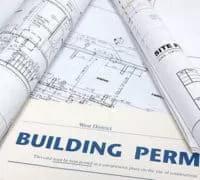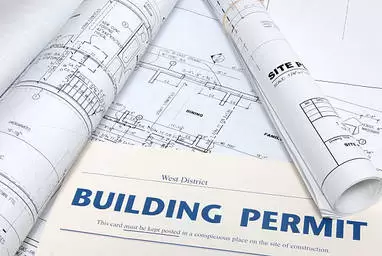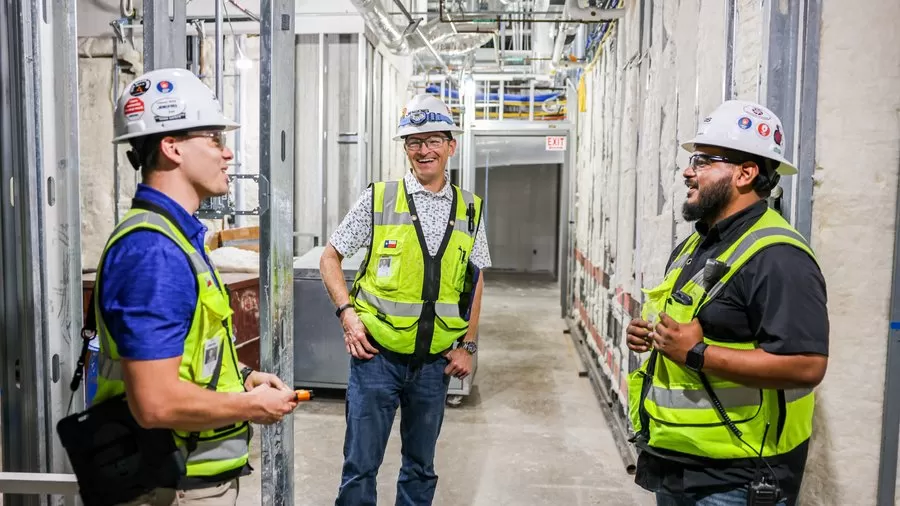
The State of Texas requires Electrician, Plumbers and Mechanical contractors to pass an exam, serve time as a trade apprentice and to be licensed in their chosen field. There are other specialty contractors that are also required to have a license such as security companies and elevator contractors. With that said, there are municipalities that require their own registration and qualifications for contractors. This varies by city, county and by contractor types.
The State of Texas does not require general contractors to hold a license. Other than the fore mentioned specified trades, the State of Texas does not require commercial or residential contractors to be licensed. Just because State of Texas does not require a license does not mean that you are able to work in another state without their license. If you are a general contractor and are planning to do work in other states, you would need to check with that states licensing board for their requirements.
Key Takeaways
- Texas requires licensing only for specific trades like electricians, plumbers, and HVAC contractors, not general contractors.
- City and county registration rules vary, so contractors must understand local permitting and documentation needs.
- Contractors must carry general liability insurance, protecting both themselves and clients against damage or accidents.
- While workers’ compensation isn’t mandatory in Texas, it’s strongly advised for liability protection.
- Every contractor must have a Business Tax ID (EIN) to operate legally, file taxes, and register for permits.
Did You Know?
“Texas is one of the few U.S. states that does not require general contractors to hold a state license — but many local municipalities still require business registration and proof of insurance before work begins.”
City Registration
Many Texas city’s require business’s to register their companies. Contractors are no different. In some cases they require contractors to register as a DBA if they are not incorporated. With contractors some city’s require them to register before issuing them a building permit.
Most municipalities that require contractors to complete a registration application also require the contractor to make an application for permitting their projects in the municipalities jurisdiction. There are also additional documents that each municipality will require per their charters. Understanding each city’s requirements is the responsibility of the contractor.
Permits and Construction Documents
Most Texas cities also require contractors to provide construction plans and documents as part of the permit process. It varies widely from city to city, but the process is generally similar. The general contractor is required to complete a permit application. With the application, the contractor is generally required to provide at minimum a property site plan and detailed construction plans. In the case of a project making structural improvements, most cities require a state registered engineer’s detail plans and embossed with their seal.
Most Texas cities require some form of compliance inspection when a permit is issued. The contractor will contact the permit office and request an inspection. The city will send an inspector to the job site to confirm inspection compliance with the applicable building codes. In county jurisdictions where there are not permits required, homeowners can always retain a private third party inspector for compliance verification. In addition, any engineer that prepares the documents is also an available option for signing off on the compliance of the project.
Texas Insurance Requirements
The state of Texas requires that contractors maintain general liability insurance. It is a very good idea that clients hire contractors with insurance. This provides the general public some assurance that if the contractor accidently damages your home, that they have the ability to pay to repair it. There are other forms of insurance that can also mitigate the risk of an unexpected incident of damages from construction activity. Builders risk insurance is available for this very reason. It will cover consequential damages associated with the contractors construction on your property.
Texas Workman’s Compensation Requirements
In the event that the contractor has employees, the State of Texas does not require contractors to have workman’s compensation. Workman’s compensation is insurance that pays a portion of a worker’s wages if they miss work caused by a work related accident. The insurance is provided and paid for by the employer. The basis is that the employee has some assurance that if one of their employee gets injured and miss work, that they will receive compensation while recovering.
In the event the general contractor hires a subcontractor that does not have insurance or workman’s compensation the general contractor and the owner of the project property could be liable for injury of the subcontractors employees.
Business Tax ID
Contractors are also required by the state to have a business tax ID number or what the federal government calls an employer identification number, EIN. All business’s are required to file their sales revenue with the state comptroller’s office and pay federal taxes. In order to register as a contractor, municipalities will require a business tax ID.
From a consumers perspective, hiring a contractor can be a risky event. Although the State of Texas does not require a contractor license does not mean that there are not other forms of contractor creditability to verify. Property owners can use other customer reviews, referrals and comparable interviews with contractors. Most professional contractors will also be members of trade associations and will be involved with continued education even when it not mandated.
Partner with Licensed Experts — Build with Confidence
Whether it’s a residential remodel or a commercial project, Marwood Construction ensures compliance, safety, and superior craftsmanship in every build. Work with a trusted Houston general contractor who understands Texas construction laws inside and out.
Visit Marwood Construction to start your next project.
FAQs on Contractor License in Texas
1. What contractors need a license in Texas?
In Texas, only specific trades like electricians, plumbers, and HVAC contractors are required to be licensed by the state. Other specialized trades, such as elevator and security system contractors, also need licenses. General contractors, however, are not required by the state to hold a license.
2. Do Texas cities require contractors to register locally?
Yes. Many Texas cities require contractors to register their businesses before obtaining building permits. Requirements vary by city, but most municipalities ask for registration applications, business documents, and sometimes insurance verification.
3. Are general contractors required to have insurance in Texas?
Yes. While not all insurance types are mandatory, general liability insurance is required in Texas. It helps protect both the contractor and the client from potential damages or accidents that occur during construction work.
4. Is workers’ compensation mandatory for Texas contractors?
No. Texas does not mandate contractors to carry workers’ compensation insurance. However, it’s highly recommended, as the contractor or property owner may be held liable for injuries if a subcontractor’s employee is hurt on the job.
5. Do general contractors need a business tax ID in Texas?
Yes. Contractors are required to obtain a Business Tax ID or Federal Employer Identification Number (EIN) to register their business, file taxes, and apply for permits with municipalities.














